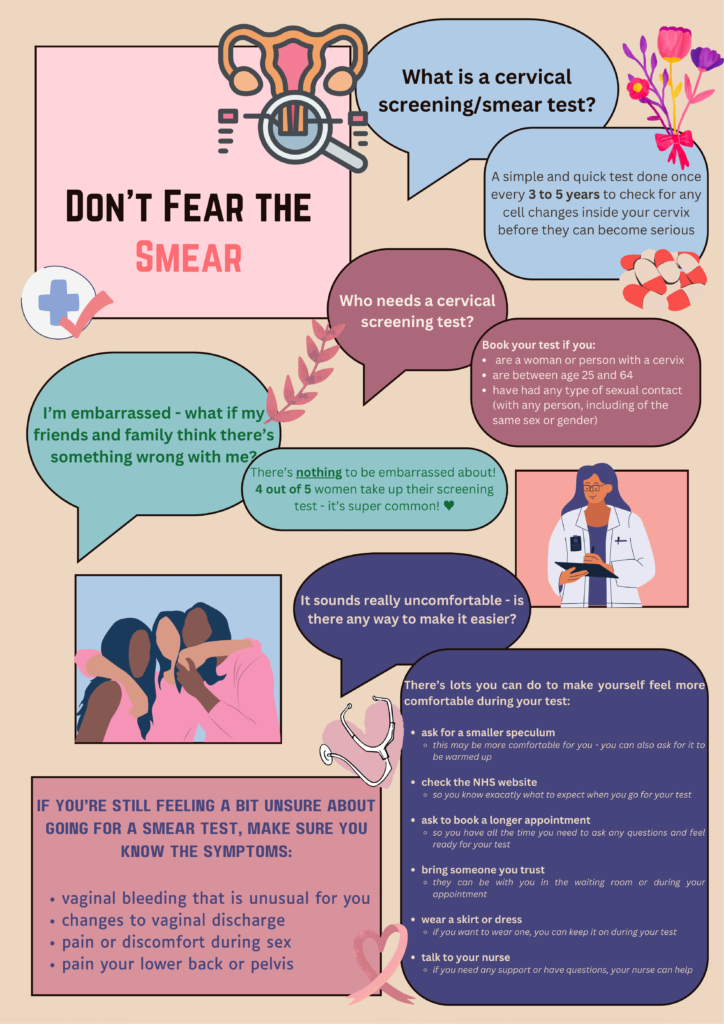What is ‘cervical screening’?
Cervical screening is also known as a Pap smear or Pap test.
It is a free health test available on the NHS which checks the health of your cervix (the lower part of the uterus that connects to the vagina) and helps you find any abnormal changes before they can turn into cancer.
The purpose of cervical screening is to identify any early signs of cervical cancer or precancerous changes. Detecting these abnormalities early allows for timely treatment, which can prevent the development of cervical cancer.er.
Who is invited for a cervical screening?
Those aged between 25-64 with a cervix. Women are usually born with a cervix. Trans men, non-binary and intersex people may also have one, and would therefore be eligible for a screening test.
What happens during the appointment?
(Info taken from the NHS website):
- You’ll need to undress, behind a screen, from the waist down. You’ll be given a sheet to put over you for privacy.
- The nurse will ask you to lie back on a bed, usually with your legs bent, feet together and knees apart. Sometimes you may need to change position during the test.
- They’ll gently put a smooth, tube-shaped tool (a speculum) into your vagina. A small amount of lubricant may be used.
- The nurse will open the speculum so they can see your cervix.
- Using a soft brush, they’ll take a small sample of cells from your cervix. This may feel strange but should not be painful.
- The nurse will close and remove the speculum and give you privacy to get dressed.
Why is it important?
Along with the HPV vaccine, cervical screening is the best way to protect against cervical cancer and prevents over 70% of diagnoses.
How can I book?
You can submit a request for a cervical screening appointment using the link below:
https://florey.accurx.com/p/F83664 and the Patient service team will get back in touch with you to confirm your appointment by telephone.
OR
Ring the GP to book a quick appointment to complete your screening test.
Additional resources that may you may find helpful:
Jo’s Cervical Cancer Trust | Cervical Cancer Charity (jostrust.org.uk)
Cervical screening – NHS (www.nhs.uk)
If you have any queries, please do not hesitate to get in touch with the practice. 😊
For more information view our poster

